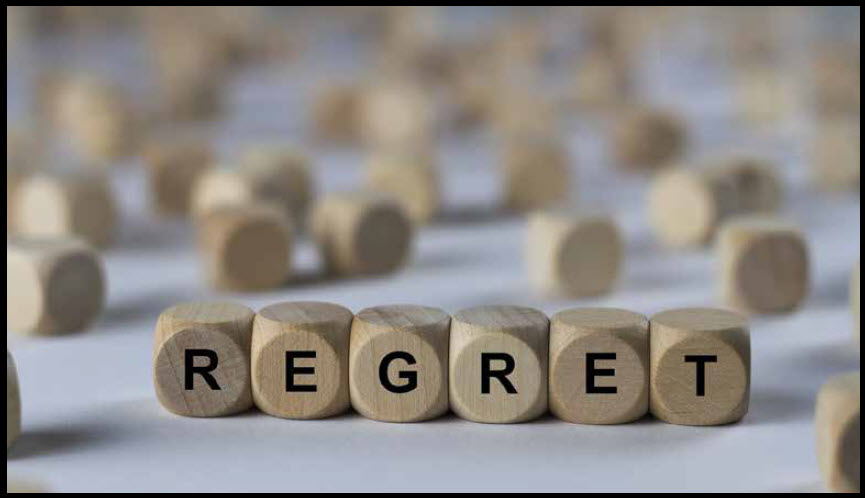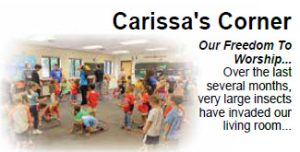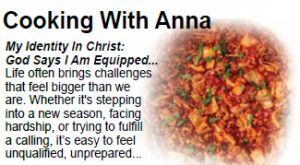By: Mae Lewis
Regret can be poisonous.
We have all experienced regret…the choice not taken, the road not walked.
Regret is a very real — and powerful — emotion. If left unchecked, it can overwhelm us. Much like unforgiveness, it acts like a poison, creating feelings of depression, anxiety or a sense of “stuckness.”
Regret can happen for two reasons: choices we made, and choices we didn’t make. In the latter, we experience regret for things we didn’t do -– the road not taken, or things that happened to us -– when we were helpless to prevent a tragedy, or when we were a victim of unfortunate circumstance.
So, how do we deal with regret? The general consensus of the internet is to “accept, acknowledge, and forgive yourself.” Mindfulness, self-compassion, and even therapy are offered as suggestions.
These are good and helpful tools, but it is important to remember that you are the author of your own life. How you tell your story matters.
You have the ability to write your own history. How do you tell your story? Do you tell your story from regret and blame? Or from ownership and gratitude?
The future in front of us is made up of a web of infinite choices…so many “yellow woods” diverging into multiple futures. Yet we can only travel one.
But your story is what you make it…so when you look at the past…at the path you DID walk…you have multiple ways to choose to look at it.
In Jesse Browner’s memoir How Did I Get Here?: Making Peace With The Road Not Taken, he says, “When we accept that our future is not ever what we envisioned it to be, but what we make of it upon arrival, we allow ourselves to move forward and accept that there is not one true future ahead of us, but multiple futures, just as there is not one past but multiple pasts behind us.”
Reframe your past, and tell your story from a grateful point of view. Find the “gift” in the path that you did walk. In essence, we need to practice gratitude for the road we DID take.
I spent several years in a terrible marriage, and just as many years regretting the fact that I had made a bad choice. But then I realized that I could be grateful instead of regretful.
I started to practice gratitude for “all the lost years/opportunities/joys.” I began to be grateful for the lessons learned, the wisdom gained, and the experiences that made me stronger, smarter, and ultimately healthier. A friend said, “Now, you are unmessable with. That’s priceless!”
I choose to recognize the priceless gift that I gained as a result of the path that I did walk.
A man I knew was offered a job with a major movie studio, but because of a problem with the mail, he didn’t receive the offer until it was too late. He spent years regretting the fact the he had missed his “big break.” Instead of the Hollywood life he had dreamed of, he lived a different life: became a teacher, raised a family, and just bought a ranch in Wyoming with his wife of 50 years. He has lived a happy life full of joy, love, and peace. He has received so many “life gifts” along the way that he might not have had otherwise. He chooses to focus on the gifts, not the losses.
I would offer that this extends even to choices that we make that are hurtful to others. Sometimes we make choices that are selfish — that end a relationship or harm someone. Regret in those instances can be healthy because they teach us to change and help us to grow. The gift in these situations might be that we have learned a lesson, realized our limitations, or revealed our weaknesses. Maybe we have realized too late how valuable a relationship was to us. In those instances, the gift may seem smaller than the pain…but it is so important to practice gratitude for the pain, even if it doesn’t make sense. Gratitude will heal your mind and your spirit. Regret will destroy it.
We are not a product of our circumstances. Circumstances do not make you. They reveal you to yourself. We are who we choose to be after the circumstances.
The man who can look at his face in the mirror and learn from the road that he has walked down is a very wise man.
Wisdom and maturity come from facing pain and learning from it…Immature people…don’t have the willingness to experience the pain that leads to authentic wisdom. – Pia Mellody
By: Mae Lewis









 June 20, 2025
June 20, 2025



